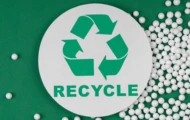Chemical recycling is an innovative method of plastic recycling that is gaining traction in Europe. Unlike mechanical recycling, which physically reprocesses plastic waste, chemical recycling transforms the waste on a molecular level, opening up new possibilities for plastic reuse1.
Chemical recycling involves breaking down plastic polymers into their constituent monomers using processes such as pyrolysis, gasification, or depolymerization. These monomers can then be purified and reassembled into new plastic polymers, effectively creating virgin-quality plastic from waste1.
One of the key advantages of chemical recycling is its ability to handle a wider range of plastic types and qualities than mechanical recycling. It can process mixed and contaminated plastic waste, and even plastics that are currently considered non-recyclable1. Furthermore, because it breaks down and rebuilds the plastic polymers, chemical recycling can produce plastic that is of equal quality to virgin plastic1.
However, chemical recycling is not without its challenges. The technology is still in its early stages and is currently more expensive than mechanical recycling. It also requires significant energy input, which can impact its environmental footprint1.
Despite these challenges, chemical recycling holds great promise for the future of plastic recycling in Europe. It offers a potential solution to some of the limitations of mechanical recycling and could play a key role in achieving a circular economy for plastics.
In conclusion, while mechanical recycling continues to be the mainstay of plastic recycling in Europe, chemical recycling represents an exciting and potentially game-changing development in the field.
May not be reproduced without permission:Rumtoo Recycling Machinery » Chemical Recycling: Advanced Methods for Plastic Reuse

 Rumtoo Recycling Machinery
Rumtoo Recycling Machinery Contact Us
Contact Us 